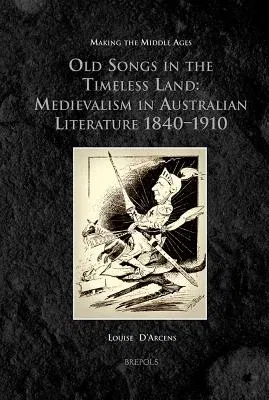This volume is the first close examination of the rich and diverse body
of medievalist texts produced in late colonial and early Federal (ie
post-1901) Australia. It examines the many ways in which early
Australian novelists, poets, and dramatists drew on the motifs, events,
and personages of the medieval past, and places particular emphasis on
how they used the European past to illuminate their sense of the
Australian present. Broadly stated, the book argues that a study of
early Australian medievalist literature and theatre uncovers a rich and
revealing drama in which the forces of cultural nostalgia and cultural
amnesia sometimes contended against one another, and sometimes
harmonised, to produce a unique and distinctive corpus. The book
significantly extends current knowledge about nineteenth-century
literary and theatrical medievalism by offering an exploration of how
medievalist discourses and idioms came to be taken up within a major,
but as yet under-examined, branch of Anglophone literature. It aims also
to broaden the cultural ambit of nineteenth-century medievalism by
offering analyses of popular and ephemeral instances alongside more
'serious' medievalist texts. The study balances an interest in how this
medievalism responded to local conditions with an interest in its
international complexion, examining how Australian medievalist novels,
poems, and plays, participated in imperial and transpacific intellectual
and entertainment circuits.While the emphasis of the volume is on close,
historically-contextualising interpretations of texts, it has woven
through its arguments a series of meditations on such theoretical
matters as how we determine the boundaries of medievalism, how we might
develop an account of colonial medievalism as non-derivative, whether
medievalist discourses are equally amenable across gender, class, and
ideological lines, and how the premodern past is evoked as a means for
formulating the present and the future. Louise D'Arcens is an Associate
Professor in the English Literatures Program. Her two main current
research areas are medievalism and medieval women's writing.

